The Rheingau Route: An Insider’s Guide to Germany’s Wine Wonderland
6 min readAs a wine enthusiast and avid traveler, I’ve always dreamed of embarking on a wine trip through Germany’s famed Rhine Valley. Known for its stunning landscapes, rich history, and world-class Rieslings, the Rheingau region has long been on my list of must-visit wine destinations. So when the opportunity arose to explore the Rhine wine region firsthand, I jumped.
My journey began at Weingut GEORGE, a charming family-run winery in the heart of Geisenheim. As I stepped into the tasting room, I was greeted by the warm smile of the winemaker, who eagerly shared the story of his family’s winemaking legacy.
“My parents started the winery 29 years ago,” he explained, his eyes sparkling with pride. “They studied here in Geisenheim and met each other at the university before starting the winery.”
I learned that Weingut GEORGE began with just half a hectare of vineyards and has since grown to a modest three and a half hectares, focusing on producing exceptional white wines, particularly Riesling.
What We Cover
The Art of Riesling in the Rhine Valley
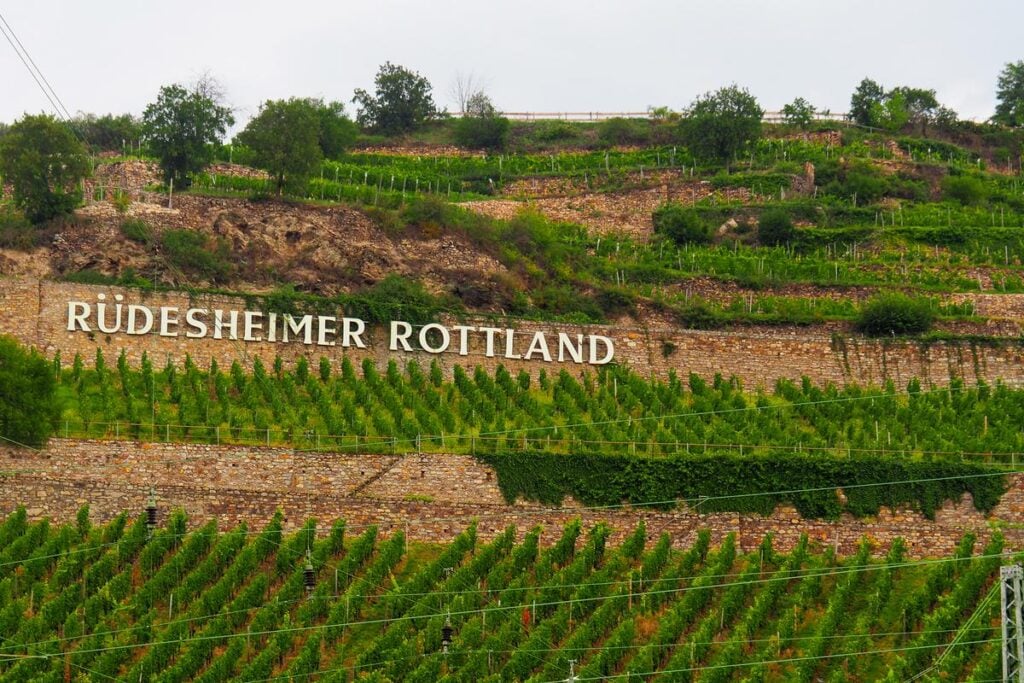

As we began the tasting, the winemaker poured a glass of his sparkling Scheurebe, a unique varietal for the region. “I started making this wine when I was studying at Geisenheim University,” he shared, explaining that he fell in love with the grape’s aromatic qualities.
But the show’s true star was, of course, the Riesling. The Rheingau is renowned for producing some of the world’s finest expressions of this noble grape, and Weingut GEORGE’s offerings did not disappoint. We sampled a range of Rieslings, from the crisp and refreshing “Villa Clara” house wine to the more complex, age-worthy single-vineyard bottlings.
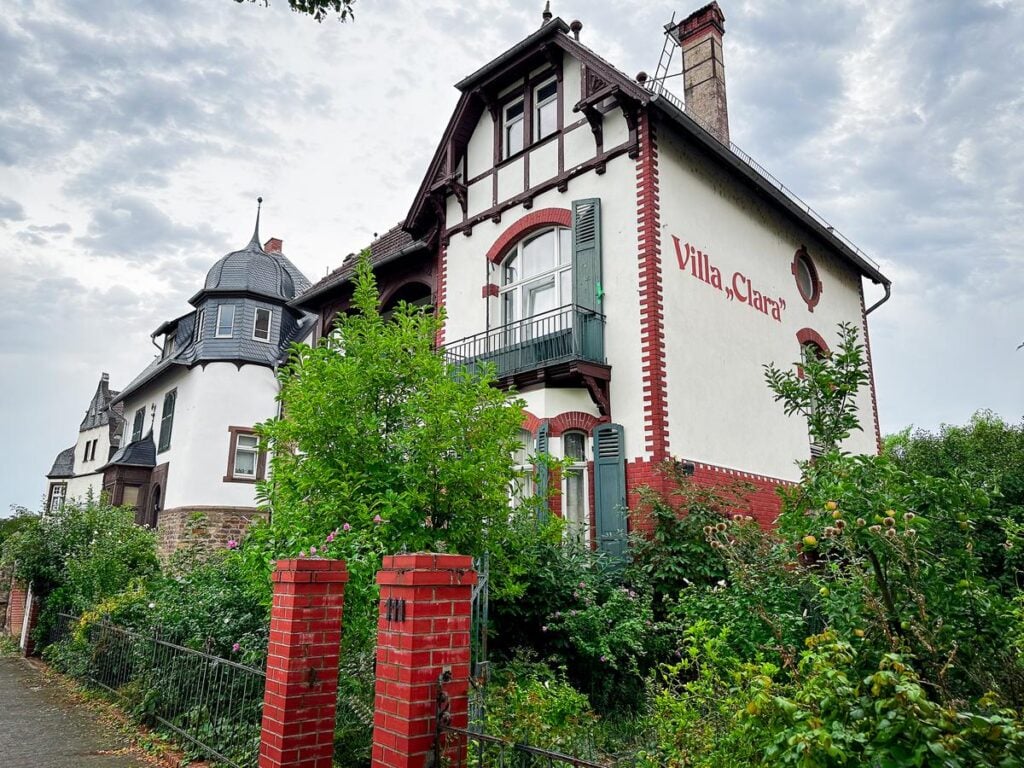

As we sipped and savored, the winemaker shared his thoughts on the challenges of climate change and its impact on the region’s vineyards. “It’s difficult,” he admitted. “Every year is different, and you never know what the weather will bring.”
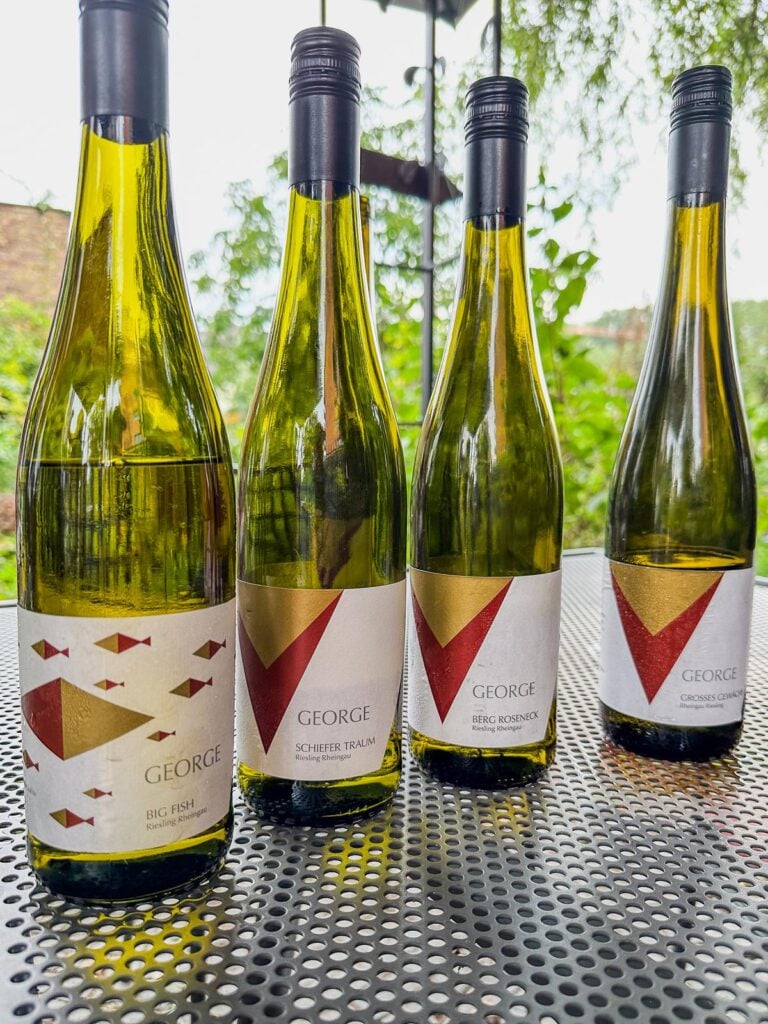

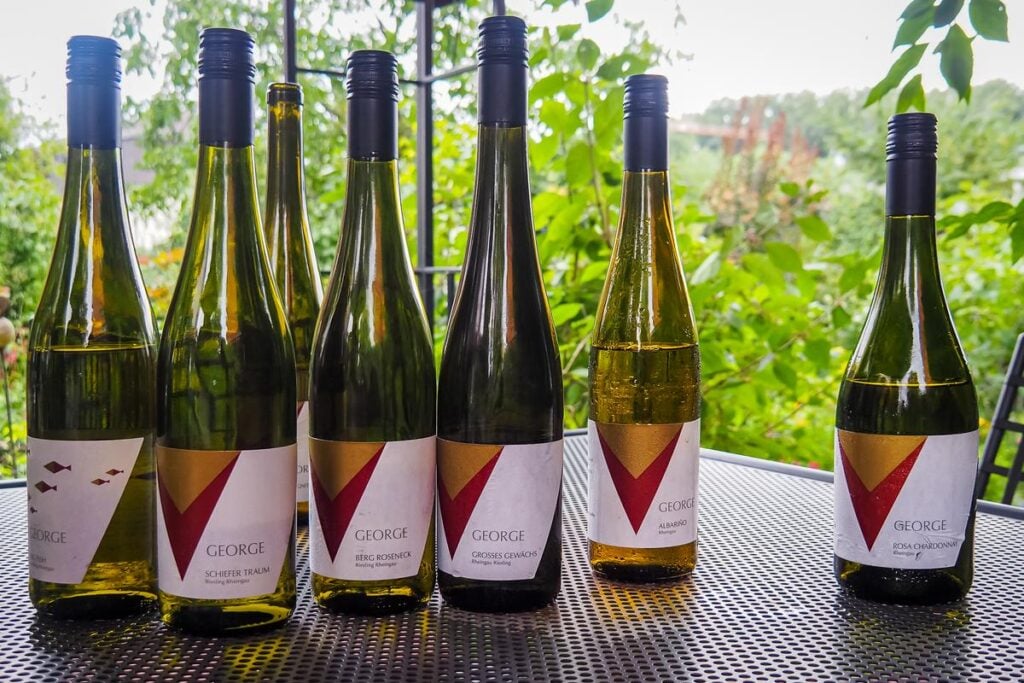

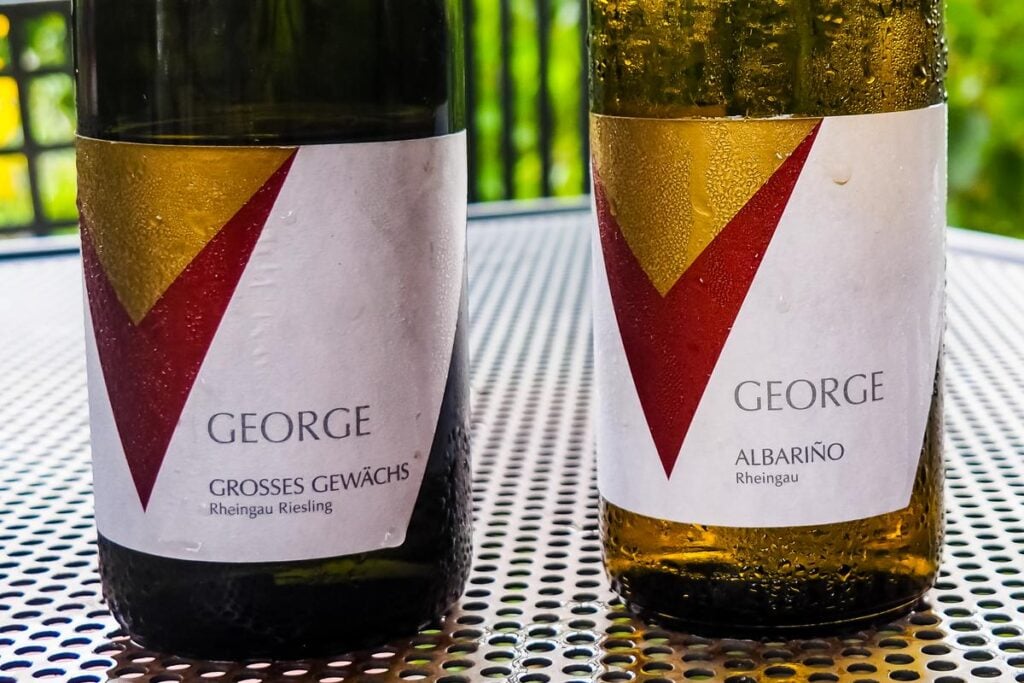

Despite the unpredictability, he remained optimistic about the future of Riesling in the Rheingau. “At the moment, we have a cool climate, with hot days and cool nights, which is perfect for maintaining acidity in the wines,” he explained. “For now, it’s still very good for white wines.”
Here are some different techniques used by vineyards we met with:
| Technique/Feature | Description | Impact on Production |
|---|---|---|
| Barrel Aging | Uses traditional German barrels (Strict fus and Tric) sourced from local wood, emphasizing micro-oxidation over flavor addition. | Enhances the wine’s complexity and aging potential without overpowering the grape’s natural flavors. |
| No Temperature Control | Wine is fermented in barrels without artificial temperature control, relying on cellar conditions. | Promotes natural yeast activity and can result in unique, location-specific wine profiles. |
| Use of Cultivated Yeast Strains | Specific yeasts are added to control fermentation, ensuring consistency and predictability in the fermentation process. | Provides a balance between traditional winemaking techniques and modern vinification controls. |
Exploring the Depths of Rüdesheim’s Cellars
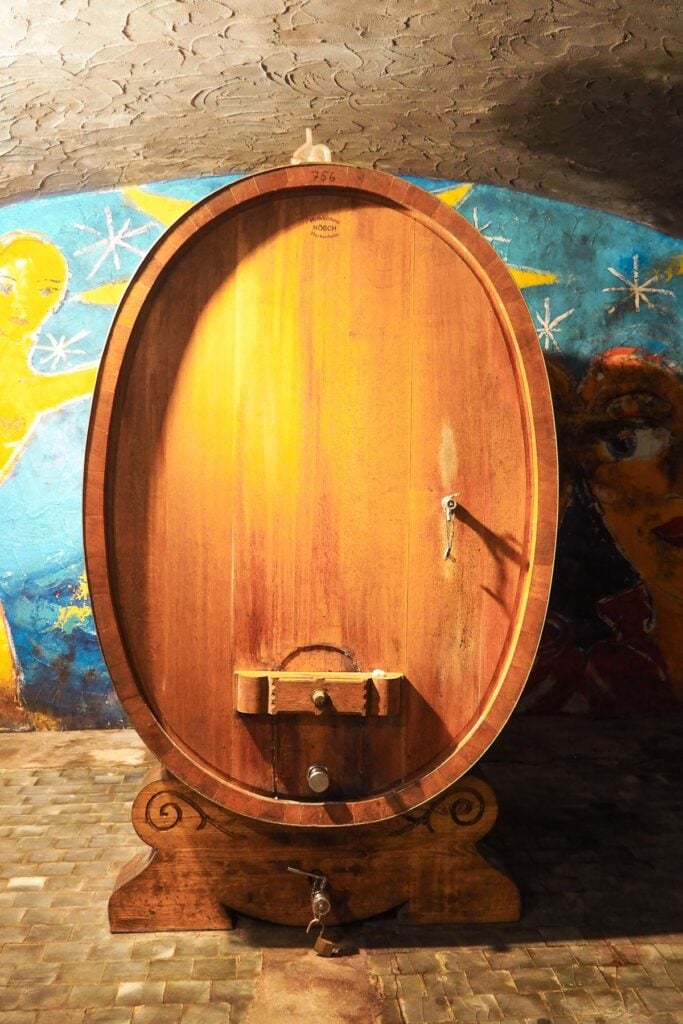

My Rhine wine adventure continued with a visit to Weingut GEORG BREUER in the picturesque town of Rüdesheim am Rhein. As I descended into the winery’s historic cellars, I was struck by the sense of tradition and craftsmanship that permeated the space.
The cellar master, a passionate young man with a deep love for his craft, guided me through the labyrinth of barrels and bottles. “This cellar has been around forever,” he explained, gesturing to the ancient stone walls. “It’s survived at least two wars.”
We paused before a row of impressive oak barrels, each bearing a different vintage. “These are our ‘Stückfass’ barrels,” he said, running his hand along the smooth wood. “They’re made by a small German company crafting barrels for generations.”
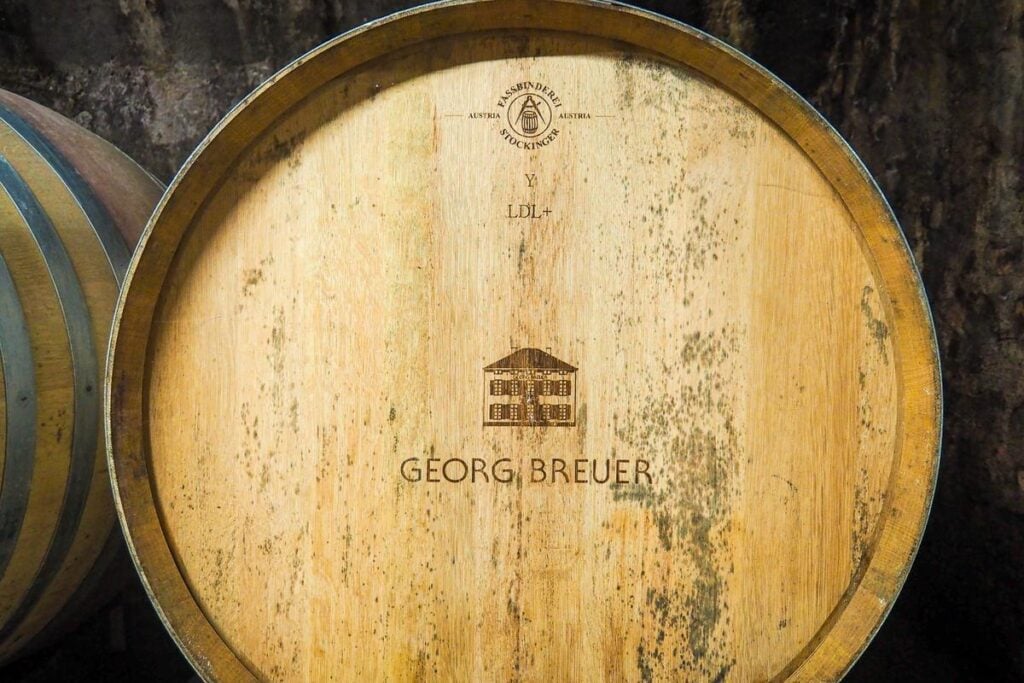

I learned that Weingut GEORG BREUER focuses on using oak to enhance the natural flavors of the wine rather than imparting heavy oak characteristics. “We try to preserve the already existing flavors,” the cellar master explained.
“It’s about the micro-oxygenation and the different chemistry you get from wood rather than steel.” Here’s a look into the bottling operations at Weingut GEORG BREUER.
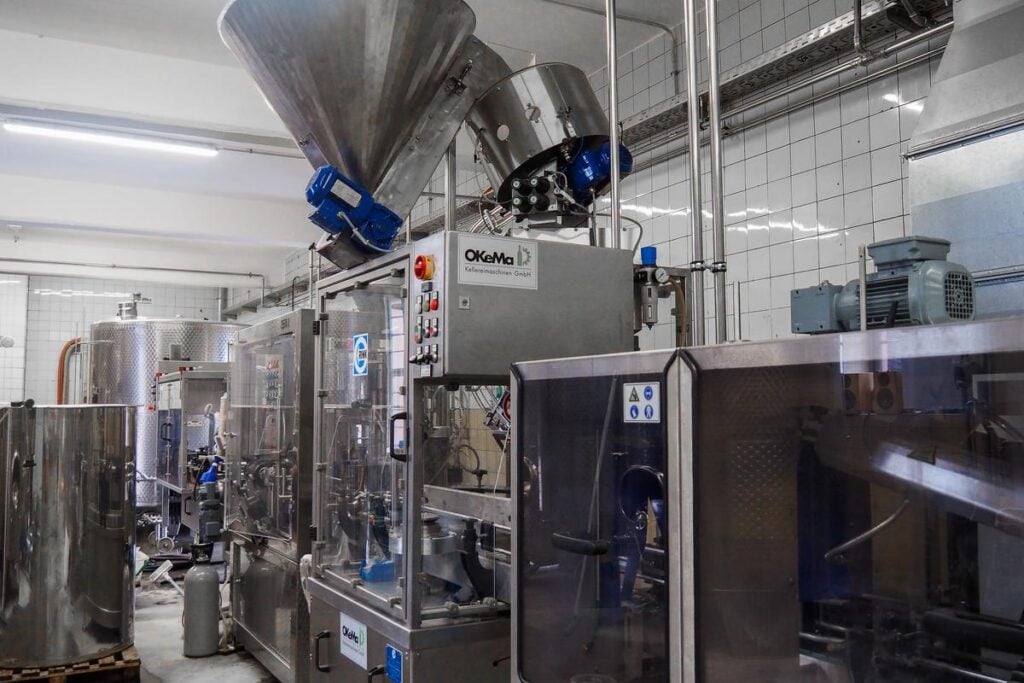

As we tasted through a range of the winery’s offerings, I was particularly impressed by the “Berg Schlossberg” Riesling. This single-vineyard wine showcased the incredible potential of the Rheingau’s steep, slate-rich slopes.
Read Also: Different Types of German Wine
Impact of Climate Change on the Region
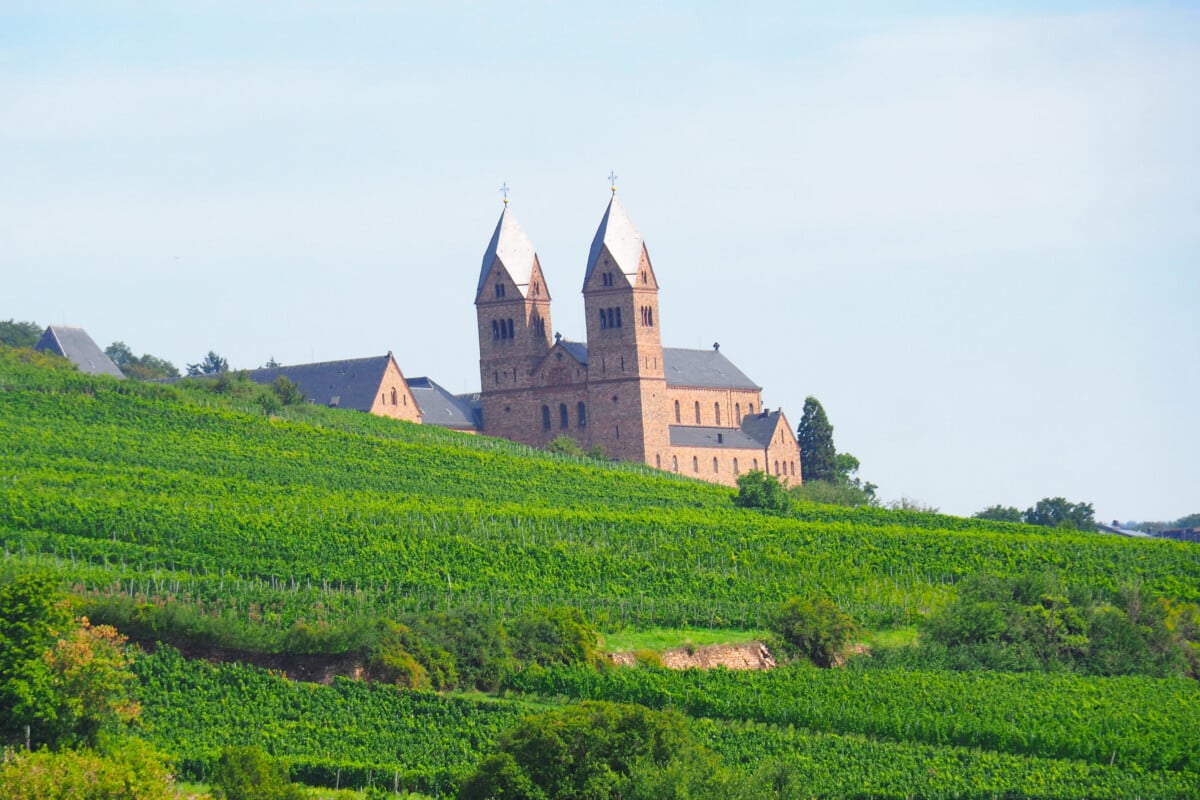

I discussed climate change with each vineyard to see how it has impacted their business and the quality of wine. Here’s a summary of my findings:
| Climate Challenge | Impact on Vineyard | Adaptation Measures |
|---|---|---|
| Increased Rainfall Early Season | Affects vine growth and can increase disease pressure. | Strategic canopy management and drainage improvements to combat excess moisture. |
| Extended Dry Periods | Stresses vines, especially on steeper slopes with poor water retention. | Water management techniques, possibly considering drought-resistant rootstocks or varietals in future planning. |
| Variable Weather During Harvest | Can lead to uneven ripening and necessitate selective harvesting to maintain quality. | Flexible harvesting strategies and increased monitoring of vine health and grape maturity. |
The Art of the Label at Weingut GEORG BREUER
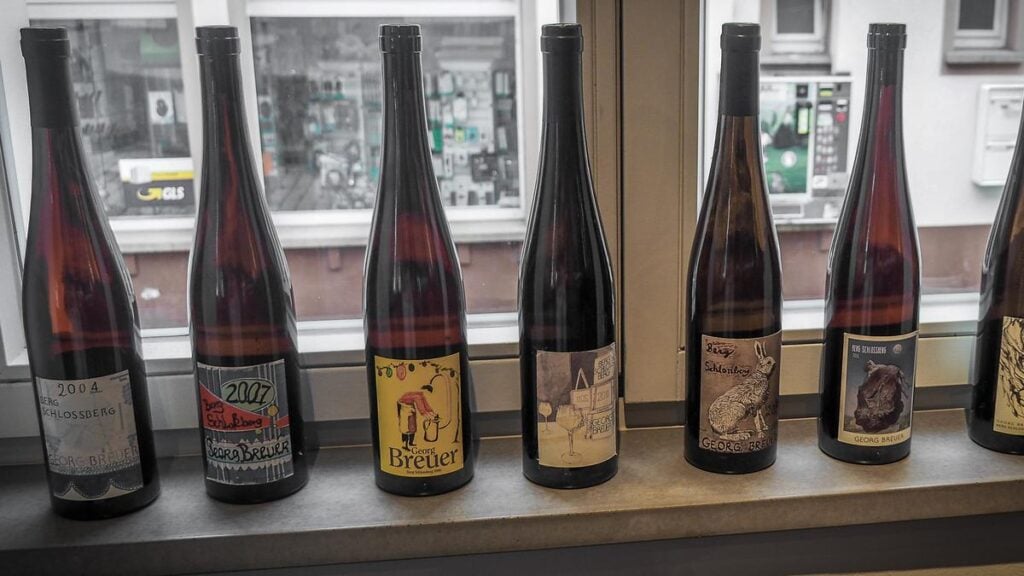

One of the most fascinating aspects of my visit to Weingut GEORG BREUER was learning about the winery’s unique approach to label design. The “Rüdesheim Berg Schlossberg” label each year features a different artwork, a tradition that began in the 1970s.
“It’s a bit of a rip-off of Mouton Rothschild,” the cellar master admitted with a grin, referring to the famous Bordeaux estate known for its artist-designed labels. “But it’s become a big part of our identity.”
As we wandered through the cellar, I marveled at the range of labels, from classic and elegant to bold and abstract. “Selecting the artwork each year is a big event,” he explained. “We have artists come in and taste the wine, and then they create something that captures its essence.”
Weingut GEORG BREUER Menu
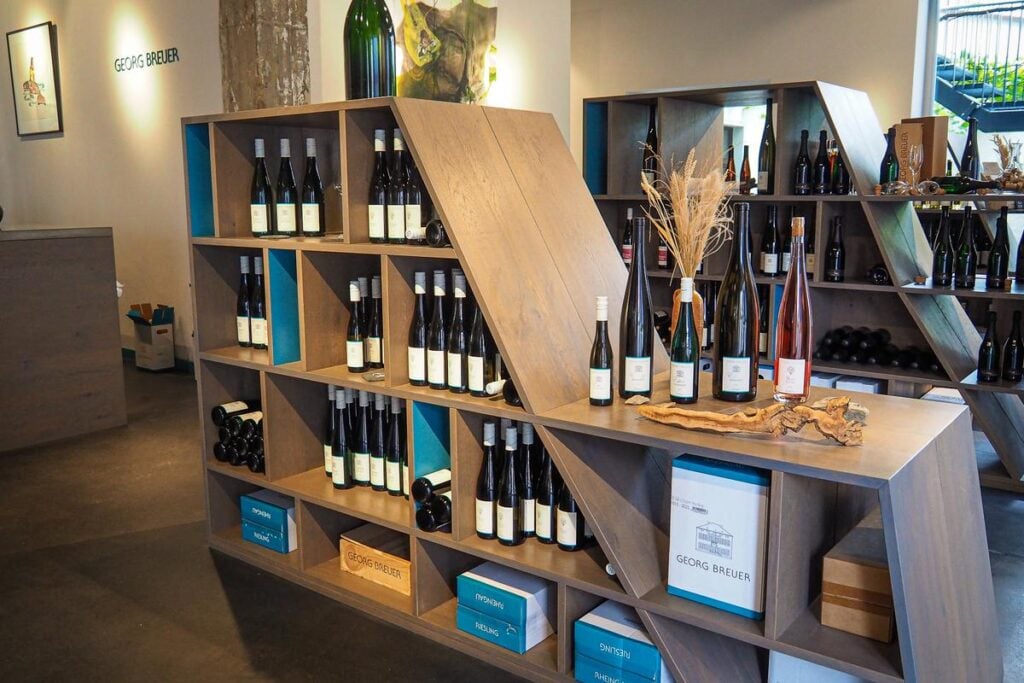

| Wine Category | Year | Name | Volume | Price |
|---|---|---|---|---|
| Portuguese Wine | 2019 | Ardosino | 0.75l | € 14,50 |
| Portuguese Wine | 2011 | Campo Ardosa | 0.75l | € 24,00 |
| Sparkling Wine | 2020/21 | Riesling Brut | 0.75l | € 16,00 |
| Sparkling Wine | 2009 | Georg Breuer Brut | 0.75l | € 40,00 |
| Grand Cru | Various | Various | 0.75l | € 68,00 – € 98,00 |
| Terra Montosa | 2021/2022 | Various | 0.75l / 1.5l | € 28,00 / € 61,00 – € 32,00 / € 69,00 |
| Village Riesling | 2022 | Rüdesheim / Rauenthal / Lorch | 0.75l | € 19,50 – € 93,00 |
| Rheingau Quality Pyramid | 2022 | GB Sauvage, Riesling dry / GB Charm, Riesling off-dry / GB Gris, Pinot Gris dry | 0.75l | € 12,50 – € 16,00 |
A Celebration of Rhine Valley Wines
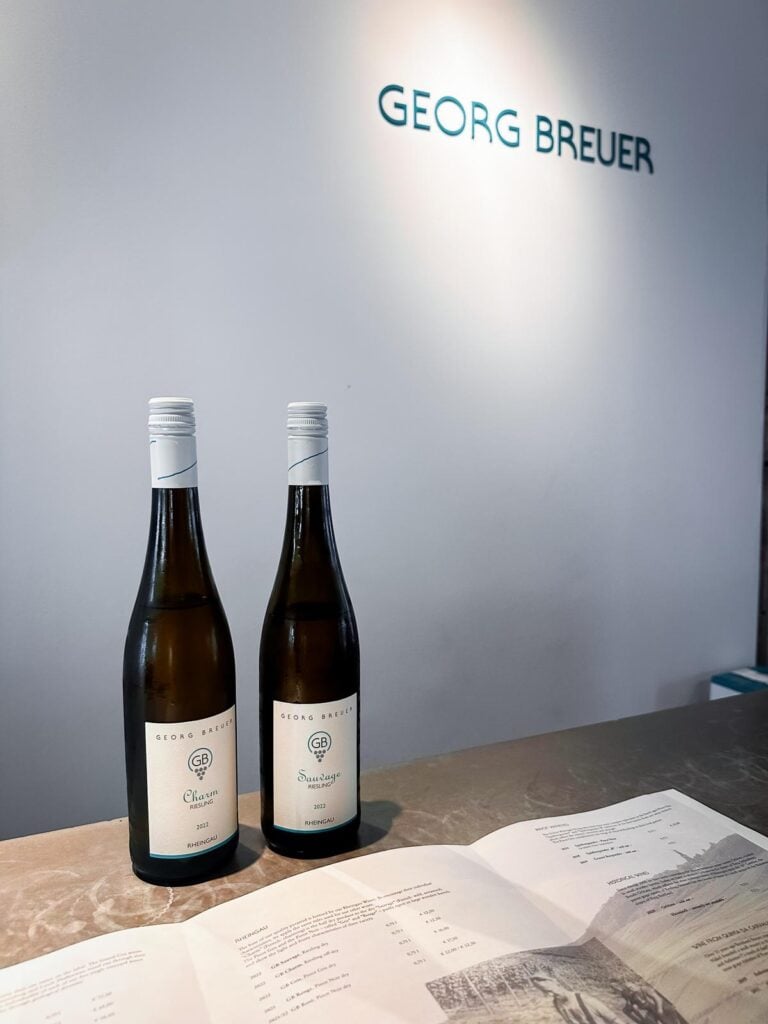



As my wine trip through the Rheingau ended, I reflected on the incredible diversity and quality of the wines I had tasted. From the crisp and aromatic Rieslings of Weingut GEORGE to the complex and age-worthy bottlings of Weingut GEORG BREUER, each sip told a story of the region’s terroir, history, and winemaking tradition.
The Rheingau may be a small region, but its impact on the world of wine is immeasurable. The dedication and passion of its winemakers, combined with the unique climate and soil of the Rhine Valley, have made it a true mecca for wine lovers around the globe.
Until next time, I’ll dream of those steep, sun-drenched slopes and the luscious, crisp Rieslings that have made the Rheingau a wine lover’s paradise. Prost!



